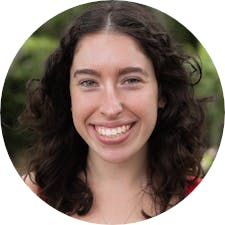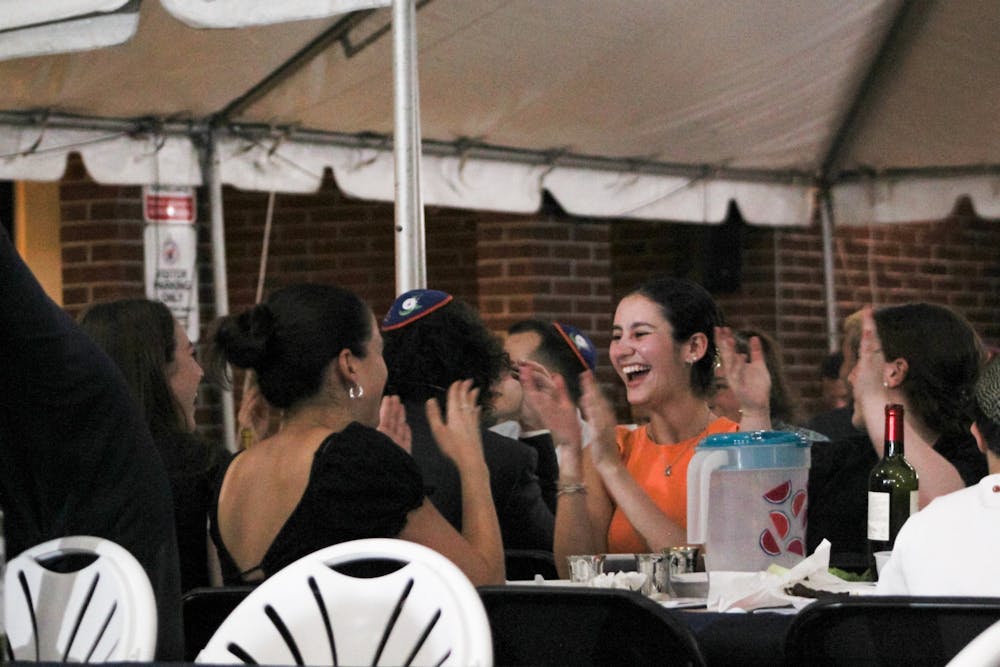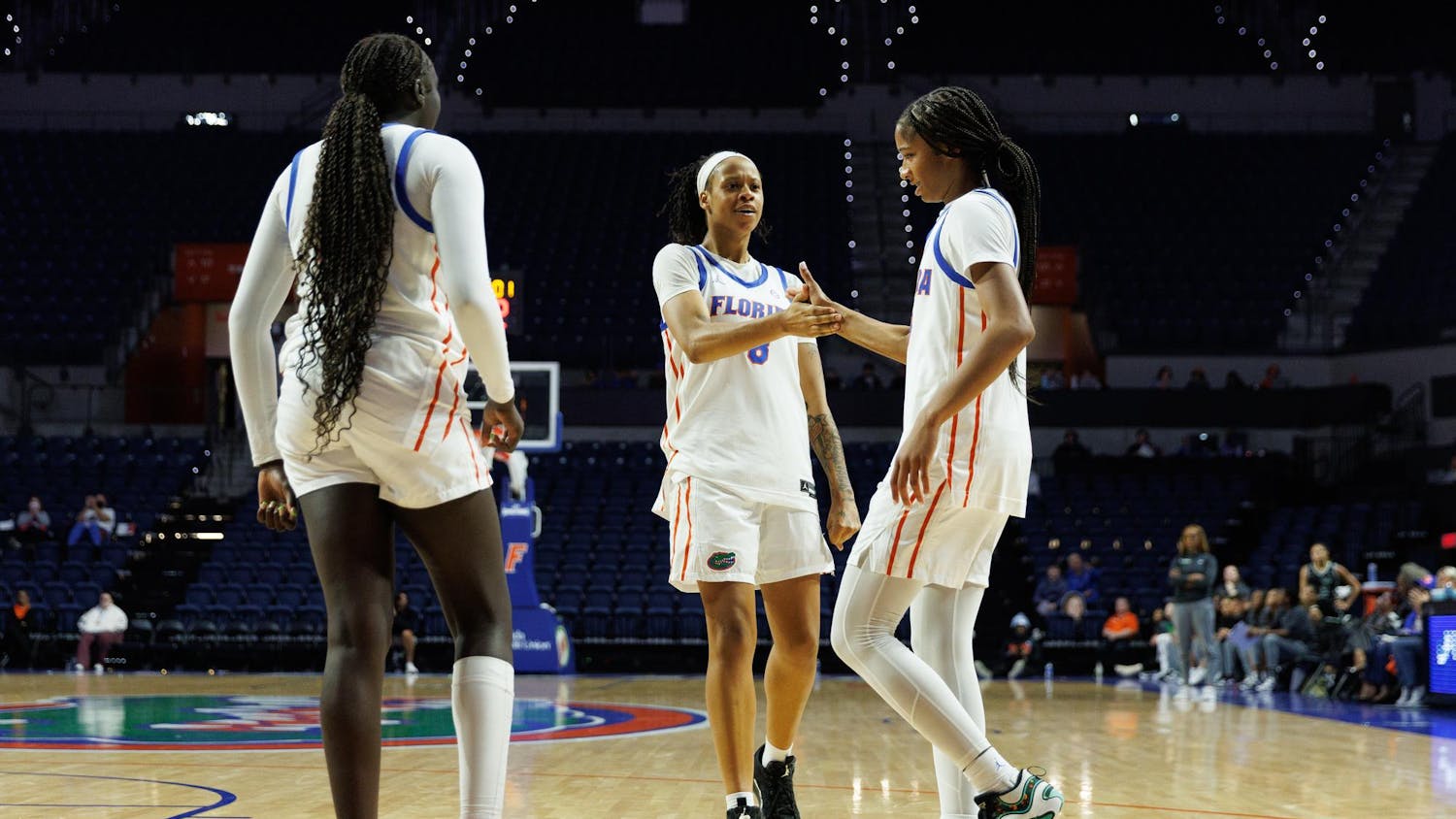A white tent covered about 20 tables at the Lubavitch Chabad Jewish Student Center Wednesday night, each scattered with seder plates, bundles of matzos and copious bottles of wine — most of which were empty by the end of the night.
Students wearing blue and orange kippahs squeezed past each other to find a seat, some waving at friends from across the room, others shaking hands with Rabbi Berl Goldman.
“Happy f-cking Passover,” one student said as he raised his two-inch deep wine cup, a toast to the first day of the Jewish holiday.
Nearly 700 students and Gainesville residents gathered at the Chabad Wednesday night to celebrate Passover — the celebration of the Jewish people’s liberation from slavery in Egypt. Chabad hosts the largest sit-down seder in North America, according to its email press release.
For Michael Shulman, a 20-year-old Santa Fe College health science sophomore, Chabad is a good place to meet other Jewish people.
“It's such a warm holiday, and yet, it's remembering something that probably for the people during that time was so bitter-feeling,” he said. “So, it’s the least we can do.”
Shulman stood in line for dinner with his friend Benjamin Heiman, a 22-year-old UF history junior, who said Passover was a fun tradition.
“They wanted us to have a good time, our ancestors,” Heiman added.
The seder, or traditional Passover prayers and dinner, lasted about two and a half hours, from 7:30 to 10:00 p.m., by which time more than half the attendees had left. After dinner, the celebration continued with music, singing and dancing.
This was Goldman’s 23rd year hosting the seder, he said. Between speeches and prayers, the rabbi asked student volunteers to read portions of the Haggadah, the book containing the order of events and prayers for the seder.
As attendees sat down, Goldman also mentioned that the holiday was a good opportunity to meet a future husband or wife. In fact, marrying Jewish was one of the best things to do for the community, he said.
During Passover, observers don’t eat leavened foods, including bread, as an homage to the story that the fleeing Jews couldn’t leaven their bread before escaping from Egypt. Instead, it’s tradition to eat matzo, an unleavened flatbread-style cracker.
About halfway through the seder, the room broke into song with a lively rendition of “Dayenu,” a Passover song translating to “it would have sufficed us.” The song thanks God for being kind to the Jewish people.
The seder included enough dinner to serve more than 800 people, Goldman said. Trays of brisket, potato souffle and chicken soup lined the inside of the Chabad as students stacked their plates. One student came back for seconds, asking for a take-out plate to eat later.
For Meir Schochet, a 20-year-old UF astrophysics sophomore, the meal was the best part of the night — particularly, the brisket.
“Chabad is a place where I can feel connected to my religion and feel connected to the community,” he said. “I came out to learn, experience and eat good food.”
Contact Alissa at agary@alligator.org. Follow her on Twitter @AlissaGary1.

Alissa is the Fall 2025 editor-in-chief of The Alligator. She has previously been engagement managing editor and university editor, and she has covered stories across UF and Gainesville. She was also an intern at the Orlando Sentinel and The Chronicle of Higher Education. In her free time, she likes to spend time with her cat and take care of her plants.






